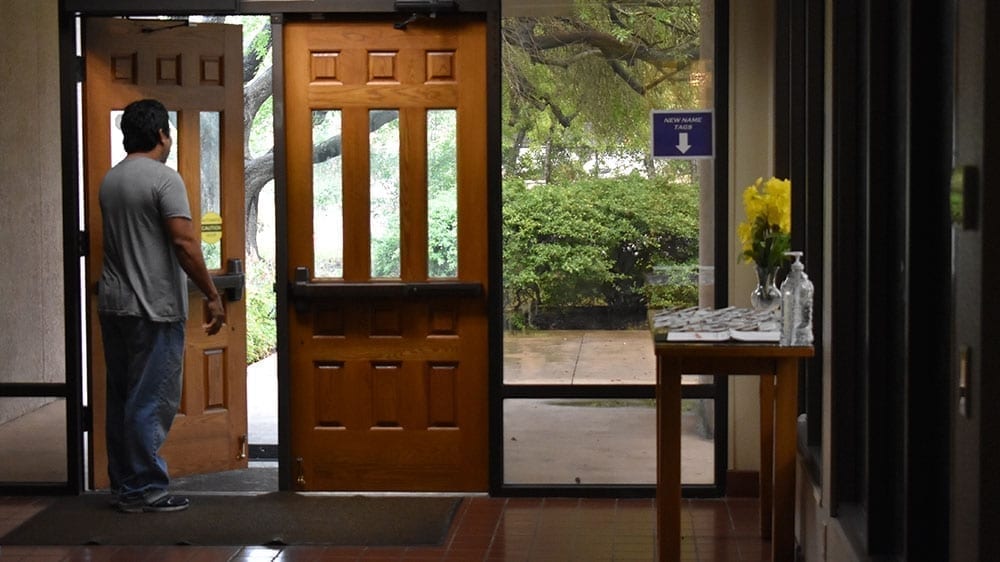So-called sanctuary churches are pushing back against the Trump administration’s drive to round-up and deport illegal immigrants.
An al-Jazeera special recounts the tale of 40-year old Alirio Gomez, who fled El Salvador after receiving a slew of death threats from criminal gangs. Arriving in the United States, Gomez joined a circuit of immigrants increasingly taking up residence in places of worship.
Although the Salvadorian man didn’t win his fight against deportation, he said he’d rather keep struggling to stay in the United States than return to a homeland increasingly racked by violence.
Initially setting up shop in the First Unitarian Universalist Church of Austin in Texas, Gomez made his way from one church to another. While Immigration and Customs Enforcement (ICE) doesn’t prohibit its agents from entering churches, houses of god, are, by and large, considered “sensitive” zones by the agency.
At least 32 congregations across the United States have publicly proclaimed themselves as sanctuaries for illegal immigrants, allowing laborers to rest free from fears of a midnight arrest.
Nina Pruneda, a public affairs officer with ICE, said there’s technically no law preventing its personnel from detaining migrants at sensitive locations such as churches. Rather, the agency has held the policy in long-standing regard, with field agents required to obtain permission from their superiors before chasing suspects into congregations or schools.
“Current ICE policy directs agency personnel to avoid conducting enforcement activities at sensitive locations unless they have prior approval from an appropriate supervisory official or in the event of exigent circumstances,” explained Pruneda.
And Gomez, reports al-Jazeera, has taken to living in a small room at the church. Even though his appeals to stay in the United States have been denied, the 40-year old man says there are only two thoughts lingering in his mind.

Over the course of the past several decades, El Salvador has quickly become the epicenter of the Central American gang crisis. With a nationwide homicide rate of 81.2 per 100,000 people, increasing numbers of locals have taken to moving northward.
According to Gomez, being an honest man isn’t enough to escape the attention of gangs in El Salvador. Criminal groups, he says, often ask otherwise ordinary people to assist them in conducting business – be it transporting drugs or engaging in illegal acts of extortion.
“If you don’t do what they ask, they kill you… if you’re a woman, they rape you,” he said.
And if that’s not enough, Gomez says, the average Salvadorian only earns about $30 per six-day week. After collecting their salary, gangs will take a portion of an individual’s income for themselves.
“Thirty dollars isn’t enough to provide for a family,” says Gomez. “If you give 15 to them, it’s even worse.”
For illegal immigrants like Gomez, relying on churches to provide shelter seems a much better choice than giving themselves up for deportation or detainment.
Following in a long tradition of what al-Jazeera describes as resistance to xenophobic and nativist public policies, some churches have taken to providing shelter to those who can’t risk returning home. And with an administration in power that’s keen to send away honest migrants alongside their criminal counterparts, the stakes are higher than ever.
“There is no question,” said Jim Rigby, a pastor at St. Andrew’s Church. “Things have grown much worse.”
“The fear is growing,” he said.
Sources
Sanctuary churches fight Trump’s deportation surge
Under Trump, more churches offer sanctuary but few seek refuge


Join the conversation!